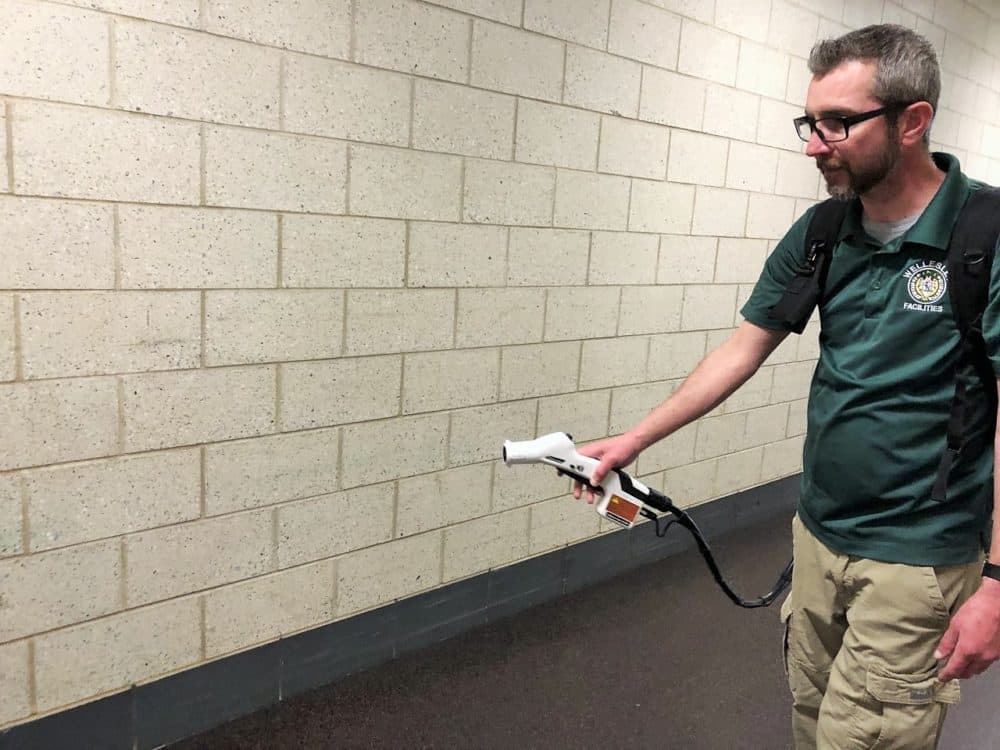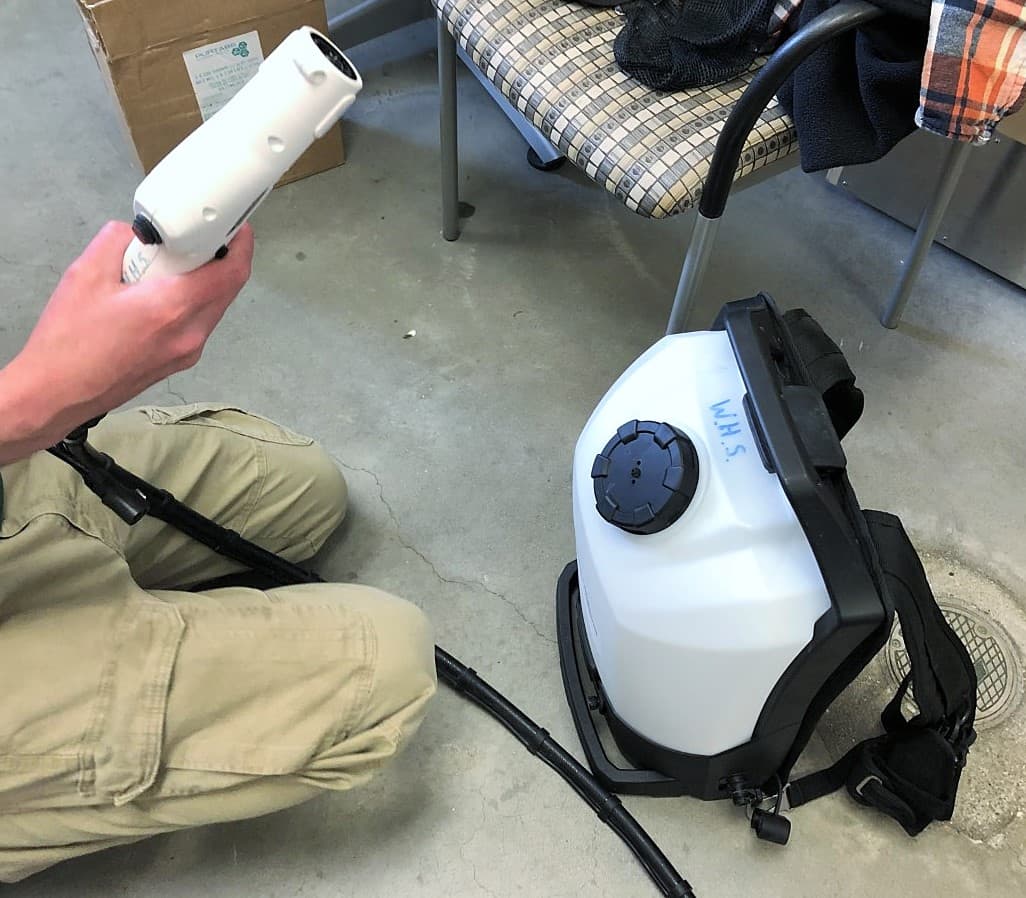Advertisement
'Ghostbusters' Gadgets And N95 Masks: Professional Cleaning In The Age Of Coronavirus
Resume
Many industries are struggling during the coronavirus outbreak, but at least one type of business is in high demand: professional cleaning.
Work that can be unpleasant in normal times may now feel downright unnerving in the midst of a global pandemic. And there may not be enough trained workers to do it.
Many professional cleaners are self-taught, like Ana Rodrigues, who runs a small commercial and residential cleaning company, called Sparkling Star Cleaners, in Rockland. Besides making her own schedule, she likes that she didn't need special training to go into business.
"No, you know, as a mother, I already know what kind of safety for me to use," said Rodrigues. "And then I did my own training online, watching videos."
With 11 children, Rodrigues has enough cleaning experience for most jobs. But that may not be sufficient to confront the coronavirus, according to Patty Olinger, executive director of the Global BioRisk Advisory Council, a division of the International Sanitary Supply Association trade group in Northbrook, Ill.
"One of the things that this pandemic is showing us is that we don't have enough trained individuals," said Olinger. "This is potentially a gap in our industry, from the standpoint of really making that connection between cleaning and health."
Olinger explained that properly sanitizing buildings can involve experienced professionals and advanced equipment, such as electrostatic sprayers, which look as if they were yanked from the set of Ghostbusters.
The town of Wellesley bought one for every public building at the start of flu season and now is using them to guard against the coronavirus. With a misting gun attached by a hose to a tank on his back, custodian Tony Vassiliadis demonstrated by disinfecting a drinking fountain at Wellesley High School.
"You just want to keep moving," he said, continuing down a hallway.
Sanitizing surfaces in Wellesley feels like an urgent and potentially risky task after the parent of two students in the district tested positive for the coronavirus. The school system planned to close for two weeks before Gov. Charlie Baker shuttered schools statewide until April 6.
On the front line, Vassiliadis is trying to stay calm.
"If I get it, I get it," he said. "I'm going to go to the doctor and see what they can do."
He said custodians frequently get sick in their first year of scrubbing germs and wiping up bodily fluids — some reward for a gig that starts at less than $20 an hour in this town. He sprays his car keys at the end of every shift and hopes he's built up a strong immune system over eight years on the job.
The custodians take other measures, too.
"Our custodians always wear gloves, and they'll wear a [N95] mask," said Joe McDonough, the town's facilities director.
There's a lot more to cleaning thoroughly and safely than just grabbing a mop and broom, he added.
"We spend two days training them on blood-borne pathogens, asbestos awareness, the Right to Know Law," McDonough said.
Federal and state versions of Right to Know laws require people to be notified of potential hazards, like the coronavirus, in the workplace.
Simply knowing about a risk isn't the same as knowing how to minimize it, which is why the Global BioRisk Advisory Council is developing a new certification program that Olinger hopes will become industry standard. She pictures plaques on the walls of hotels, for example, signaling that housekeepers use best practices to stop diseases from spreading.
That could be reassuring for guests and housekeepers alike. Right now, hotels are making good-faith — but largely informal — efforts to protect employees, said Carlos Aramayo, secretary-treasurer of Unite Here Local 26, a union representing thousands of hospitality workers in Greater Boston.
"Some properties are starting to give people 5-minute breaks every hour to wash their hands, doing some trainings on how to wash your hands," he said.
Other hotels have gone so far as closing temporarily — including a Marriott in Boston that hosted a meeting tied to the majority of coronavirus cases in Massachusetts. Marriott says it's responding to the outbreak with the help of a Minnesota-based professional cleaning firm called Ecolab.

This segment aired on March 18, 2020.

